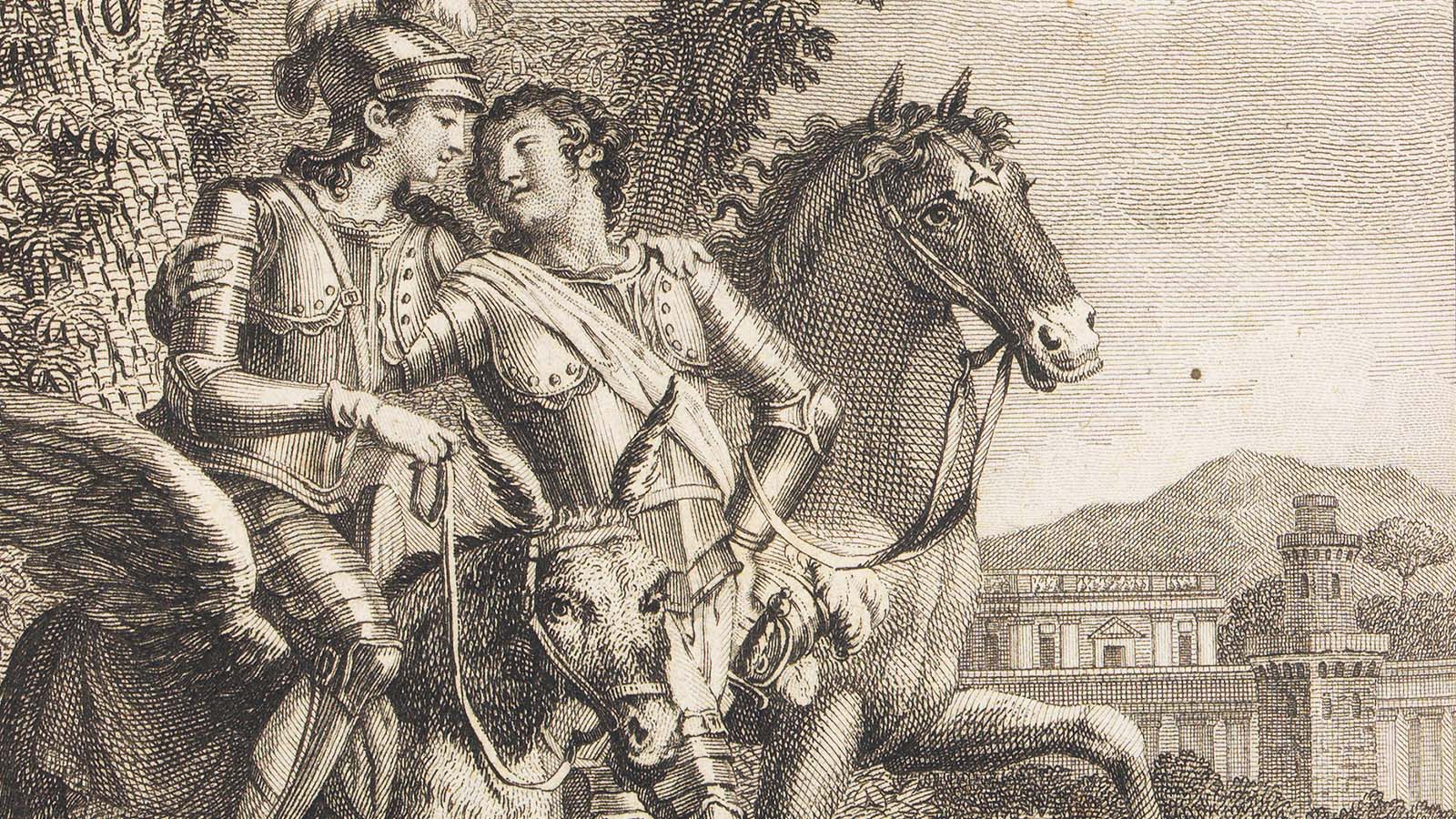Censorship and Revolution. Forbidden Books in the Age of Enlightenment
Through literature, politics and history, whether in the form of a novel, treatise, epic poem or compendium, the great eighteenth-century thinkers of the French Enlightenment promoted ideas of liberty, equality, fraternity and tolerance. Questioning the values of Absolutism and Clericalism, their texts were closely related to the American Revolution of 1776 and the French Revolution of 1789.
Many of these publications were prohibited by the censors of France’s absolutist regime, the Catholic Church’s Index or the Faculty of Theology of the University of Paris (Sorbonne). However, these authors frequently endeavoured to have their first editions printed in secret or in cities outside French territory, often anonymously.
In the year marking the 50th anniversary of the 25 April Revolution, we are exploring the links between Censorship and Revolution. In this context, some ‘forbidden books’ by Montesquieu, Voltaire and Guillaume-Thomas François Raynal exemplify this theme perfectly, through copies published during the course of the eighteenth century and acquired by Calouste Gulbenkian for the quality of their illustrations or bindings.
![Charles Louis de Secondat, Baron de Montesquieu. Œuvres de Monsieur de Montesquieu (De L’Esprit des Loix). À Genève: [s.n.], 1777, 4 volumes. Illustrated with designs by Clément-Pierre Marillier and intaglio prints by Nicolas Delaunay. Copies from the Bibliothèque Cazin, dite Lyonnaise, in a total of 81 volumes.](https://gulbenkian.pt/museu/wp-content/uploads/sites/5/2024/03/censura-1-1.jpg)
![François Marie Arouet, known as Voltaire. La Henriade. Nouvelle édition. À Paris: Chez la Veuve Duchesne, Saillant, Desaint, Panckouke et Nyon, libraires, 1769-1770, [2 volumes], tome I. Illustrated with designs by Charles Eisen, etched by Joseph de Longueil.](https://gulbenkian.pt/museu/wp-content/uploads/sites/5/2024/03/censura-2-2.jpg)
![François Marie Arouet, known as Voltaire. La Pucelle d’Orléans, poëme en vingt-un chants. À Paris: [De l’Imprimerie Crapelet], [1800?], [2 volumes], tome premier. Illustrated and etched by various artists, such as Nicolas André Monsiaux, who conceived the design for the opening of IV canto in the first volume, etched by Nicolas Ponce](https://gulbenkian.pt/museu/wp-content/uploads/sites/5/2024/03/censura-3-1.jpg)
![François Marie Arouet, known as Voltaire. La Pucelle d’Orléans, poëme en vingt-un chants. À Paris: [De l’Imprimerie Crapelet], [1800?], [2 volumes], tome second. Illustrated and etched by various artists, such as Nicolas André Monsiaux, who conceived the design for the opening of XIV canto in the second volume, etched by Remi-Henri-Joseph Delvaux.](https://gulbenkian.pt/museu/wp-content/uploads/sites/5/2024/03/censura-4-1.jpg)
![Guillaume-Thomas François Raynal, known as Abbot of Raynal. Histoire philosophique et politique des établissements et du commerce des Européens dans les deux Indes À Genève: Chez Jean-Leonard Pellet, Imprimeur de la Ville & de l’Académie, 1780-1781, [5 volumes], tome premier. Illustrated with designs by Charles-Nicolas Cochin, the Younger, and Jean-Michel Moreau, the Younger, etched by Nicolas Delaunay, Jean-Louis Delignon and Jean-Baptiste Simonet.](https://gulbenkian.pt/museu/wp-content/uploads/sites/5/2024/03/censura-5-1.jpg)
![Guillaume-Thomas François Raynal, known as Abbot of Raynal. Histoire philosophique et politique des établissements et du commerce des Européens dans les deux Indes À Genève: Chez Jean-Leonard Pellet, Imprimeur de la Ville & de l’Académie, 1780-1781, [5 volumes], tome second. Illustrated with designs by Charles-Nicolas Cochin, the Younger, and Jean-Michel Moreau, the Younger, etched by Nicolas Delaunay, Jean-Louis Delignon and Jean-Baptiste Simonet.](https://gulbenkian.pt/museu/wp-content/uploads/sites/5/2024/03/censura-6-1.jpg)
![Guillaume-Thomas François Raynal, known as Abbot of Raynal. Histoire philosophique et politique des établissements et du commerce des Européens dans les deux Indes À Genève: Chez Jean-Leonard Pellet, Imprimeur de la Ville & de l’Académie, 1780-1781, [5 volumes], tome troisième. Illustrated with designs by Charles-Nicolas Cochin, the Younger, and Jean-Michel Moreau, the Younger, etched by Nicolas Delaunay, Jean-Louis Delignon and Jean-Baptiste Simonet.](https://gulbenkian.pt/museu/wp-content/uploads/sites/5/2024/03/censura-7-1.jpg)
![Guillaume-Thomas François Raynal, known as Abbot of Raynal. Histoire philosophique et politique des établissements et du commerce des Européens dans les deux Indes À Genève: Chez Jean-Leonard Pellet, Imprimeur de la Ville & de l’Académie, 1780-1781, [5 volumes], tome quatrième. Illustrated with designs by Charles-Nicolas Cochin, the Younger, and Jean-Michel Moreau, the Younger, etched by Nicolas Delaunay, Jean-Louis Delignon and Jean-Baptiste Simonet](https://gulbenkian.pt/museu/wp-content/uploads/sites/5/2024/03/censura-8-2.jpg)
![Guillaume-Thomas François Raynal, known as Abbot of Raynal. Histoire philosophique et politique des établissements et du commerce des Européens dans les deux Indes À Genève: Chez Jean-Leonard Pellet, Imprimeur de la Ville & de l’Académie, 1780-1781, [5 volumes], tome cinq. Illustrated with designs by Charles-Nicolas Cochin, the Younger, and Jean-Michel Moreau, the Younger, etched by Nicolas Delaunay, Jean-Louis Delignon and Jean-Baptiste Simonet.](https://gulbenkian.pt/museu/wp-content/uploads/sites/5/2024/03/censura-9-3.jpg)

